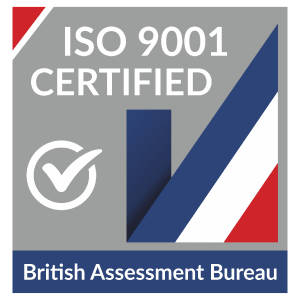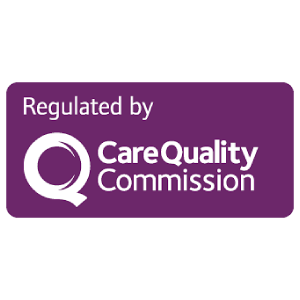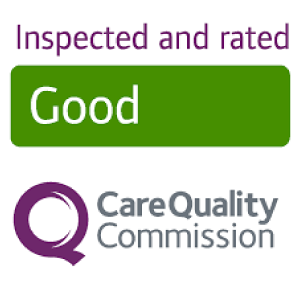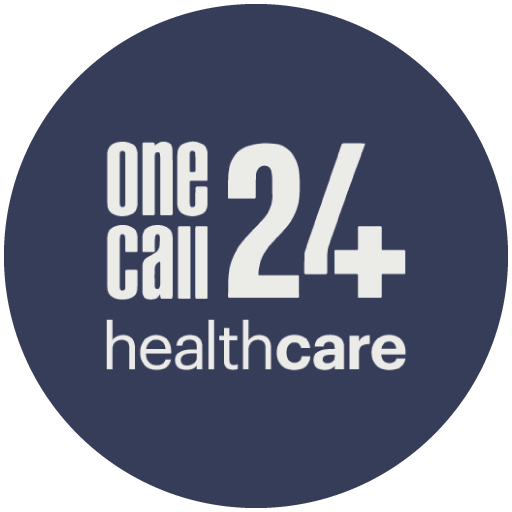
What Is Complex Care? Who Needs it?
When a loved one faces serious, ongoing health challenges, navigating the world of care options can feel overwhelming. You’ve probably heard terms like “complex care,” “continuing healthcare,” and “specialist nursing,” but what do they actually mean? More importantly, how do you know if your family member needs this level of support?
Complex care represents a lifeline for thousands of families across the UK, enabling people with severe medical conditions to receive hospital-level care in the comfort of their own homes. Let’s explore everything you need to know about this important service.
What Exactly Is Complex Care?
Complex care, sometimes called continuing care or long-term healthcare, is specialised medical support designed for people with severe, ongoing health conditions that require more than what standard home care can provide. Unlike short-term medical treatments, complex care focuses on managing conditions that may persist for months, years, or throughout someone’s lifetime. The word “complex” doesn’t just refer to the severity of a condition; it reflects the intricate combination of medical, therapeutic, and personal support needed. This might include 24/7 nursing supervision, advanced medical procedures performed at home, or carefully coordinated care delivered by multiple healthcare professionals working as a team. In the UK, NHS Continuing Healthcare (CHC) funding often covers complex care for eligible individuals, allowing them to receive medically-led support at home rather than in hospital or residential care. According to NHS England, approximately 50,000 to 55,000 people across England currently receive CHC-funded complex care, with this number steadily increasing as medical advances help people with serious conditions live longer, fuller lives.
Who Needs Complex Care?
Complex care serves people whose daily well-being depends on skilled medical intervention that goes far beyond what standard home care can offer. This includes individuals living with:
⦿ Neurological conditions such as multiple sclerosis, motor neurone disease, Parkinson’s disease, or cerebral palsy that have progressed to require specialist medical management.
⦿ Severe brain or spinal injuries where ongoing rehabilitation and medical monitoring are essential for safety and recovery.
⦿ Advanced stages of progressive illnesses, including cancer, chronic obstructive pulmonary disease (COPD), or heart failure, requiring constant medical oversight.
⦿ Long-term ventilator dependency, where people rely on breathing support machines and need trained professionals to manage this life-sustaining equipment.
⦿ Complex post-operative recovery following major surgery, where complications have arisen or healing requires intensive medical intervention.
⦿ Severe physical disabilities that necessitate constant monitoring and specialist care to prevent complications and maintain quality of life.
The common thread linking all these conditions is the need for medical expertise that standard care workers aren’t trained to provide.
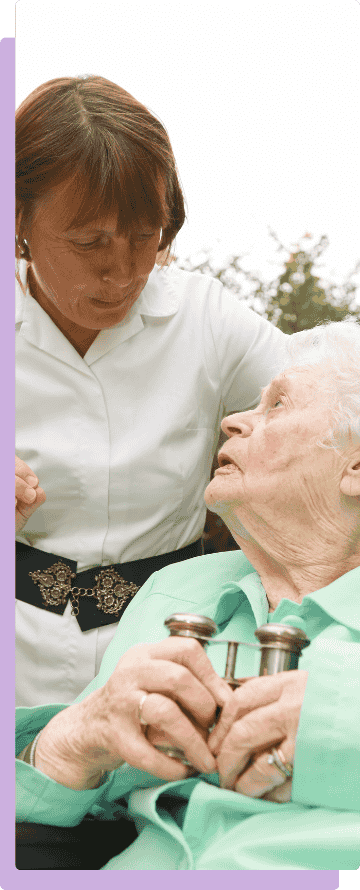
Complex Healthcare Needs: Beyond Basic Care
Understanding what defines a “complex healthcare need” is important for families considering their options. While a standard home carer might help with washing, dressing, meal preparation, and companionship, complex care involves advanced medical interventions that require specialist training.
These might include managing tracheostomies (breathing tubes), providing PEG feeding (nutrition delivered directly to the stomach), administering intravenous medications, monitoring unstable medical conditions, managing epilepsy, delivering emergency medications, or providing specialist wound care for injuries that won’t heal through standard treatment.
Complex healthcare needs are often unpredictable. Someone might have several stable days followed by sudden deterioration requiring immediate medical intervention. This unpredictability makes it essential to have skilled professionals who can make clinical decisions, provide emergency care, and coordinate with hospital services when necessary.
The complexity often extends beyond physical needs. Someone recovering from a brain injury might need cognitive therapy to rebuild memory and thinking skills, speech therapy to restore communication, and occupational therapy to relearn daily activities. Coordinating these different therapeutic approaches requires expertise and careful planning.
Complex Care vs Standard Home Care: Key Differences
Many families struggle to understand the distinction between complex care and standard home care. While both enable people to remain at home, they differ dramatically in scope and clinical involvement.
The staffing models also differ significantly. Standard care typically involves predictable visits lasting 30 minutes to an hour, perhaps several times daily. Clients receiving complex care support may require longer blocks of care, which are delivered through the day and/or night, with some clients requiring a 24/7 presence and the ability of the nursing and care team to respond immediately when called.
Training requirements highlight another key distinction. Standard care workers complete basic training covering care skills and health and safety. Complex care staff need extensive clinical training, often including nursing qualifications plus specialist training in specific medical procedures.
How Complex Care Management Works
Effective complex care management is a structured process that begins with a comprehensive assessment by qualified healthcare professionals. This examines not only medical conditions but also home environment, family support systems, and personal preferences to create a complete picture of needs.
From this assessment comes a personalised care plan outlining required medical procedures, daily routines, emergency protocols, and safety measures. This document serves as the blueprint for all care delivery, though it’s regularly reviewed and updated as conditions change. It also forms the basis of the person-centred training plans, which all members of the care team must successfully complete, before they can work with any individual client.
Risk assessment forms a crucial component, identifying potential hazards in the home and developing strategies to minimise risks while preserving independence. This might involve recommending equipment, establishing emergency procedures, or training family members in basic techniques.
Coordination between professionals represents perhaps the most challenging aspect. A typical team might include district nurses, specialist nurses, physiotherapists, occupational therapists, speech therapists, social workers, and medical consultants. Ensuring seamless communication requires robust systems and clear protocols.
According to Skills for Care, demand for complex care workers is growing 7% year-on-year, reflecting both an ageing population and medical advances enabling people with serious conditions to live longer with appropriate support.
The Complex Care Team: Who’s Involved?
Complex care requires a diverse team of skilled professionals, each bringing specific expertise:
⦿ Registered Nurses (RNs) provide clinical leadership, conducting assessments, developing care plans, performing advanced procedures, and liaising with other healthcare providers. They require additional specialist training beyond basic nursing qualifications.
⦿ Healthcare Assistants (HCAs) receive extensive training to perform specific medical tasks like PEG feeding, catheter care, or medication administration. While supervised by nurses, their specialist skills enable high-quality clinical care.
⦿ Therapists and Registered Healthcare Professionals (Also known as the MDT), including physiotherapists (maintaining mobility and managing pain), occupational therapists (assessing home environment and recommending adaptations), and speech therapists (addressing communication and swallowing difficulties), provide essential rehabilitation support.
⦿ Care Coordinators oversee entire packages, ensuring communication between team members, coordinating appointments, managing equipment, and serving as primary family contacts.

At OneCall24Healthcare, staff receive specialist training tailored to each client’s condition, covering medical equipment, disease progression, recognising deterioration, and escalation procedures.
Why Home-Based Complex Care Works
Evidence consistently demonstrates that home-based complex care benefits patients, families, and healthcare systems. For many people with complex needs, home care offers the optimal balance between safety, medical oversight, and quality of life. The familiar environment provides psychological benefits extending beyond comfort. Being surrounded by personal belongings, family photos, and familiar spaces significantly impacts wellbeing, particularly for those with cognitive changes or facing end-of-life care.
Home-based care helps avoid unnecessary hospital admissions, which can be traumatic and potentially harmful. Hospital environments may increase risks of infection, falls, or confusion, especially for vulnerable individuals. Maintaining close family and friend relationships provides crucial emotional support that impacts health outcomes. Family involvement in care decisions and daily support, combined with comfortable visiting arrangements, preserves vital social connections.
Research supports these benefits. A 2021 NHS Community Care review found that patients receiving home-based complex care had 25% fewer unplanned hospital admissions compared to institutional settings. This improves individual quality of life while saving the NHS approximately £3,000-£5,000 per prevented admission.
The personalisation possible at home extends to every aspect of daily life: meal times, sleep schedules, recreational activities, and social interactions, which are rarely possible in institutional settings.
Challenges and Solutions in Complex Care
Delivering complex care at home presents unique challenges requiring innovative solutions:
⦿ Staffing shortages represent the greatest challenge. The combination of specialist skills, emotional demands, and unsociable hours makes recruitment difficult. Competition from NHS trusts for skilled nurses further complicates matters.
⦿ Rapid response requirements mean teams must respond quickly to emergencies. This requires 24/7 on-call arrangements, emergency equipment at home, and clear protocols for escalating to emergency services.
⦿ Equipment and environmental needs often require significant home adaptations for hospital beds, hoists, ventilators, or medical devices. These modifications need ongoing maintenance and updates as conditions change.
⦿ Service coordination becomes complex when involving professionals from different organisations with varying protocols and communication systems. Ensuring seamless information sharing while maintaining confidentiality requires sophisticated systems.
⦿ Family dynamics can both support and complicate care. While family involvement is generally beneficial, disagreements about care decisions and stress from having seriously ill family members at home can create challenges.
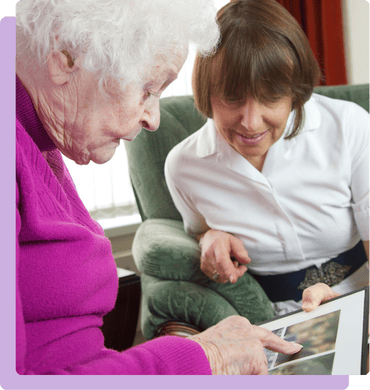
The Future of Complex Care
Complex care continues evolving through technological advances and changing demographics. Telemedicine and remote monitoring enable real-time vital sign assessment and early warning systems for deterioration. Artificial intelligence and predictive analytics show promise for identifying health patterns that might predict complications before they become critical.
Wearable devices and smart home technologies could provide continuous monitoring while preserving privacy and independence. The growing emphasis on personalised medicine means care plans are becoming increasingly sophisticated and individualised.
Complex Care with OneCall24Healthcare
At OneCall24Healthcare, we specialise in delivering personalised complex care that recognises each individual’s unique needs and preferences. Our teams receive comprehensive training across diverse complex healthcare needs, from advanced nursing interventions to rehabilitation support.
We work closely with clients, families, Case Managers, GPs, hospital consultants, and NHS teams to ensure seamless care management that’s safe, effective, and genuinely person-centred. Our approach recognises that effective complex care requires more than clinical competence; it demands understanding of each person’s story, values, and goals.
We believe everyone deserves to live with dignity and comfort, surrounded by loved ones, regardless of their medical complexity. If you’re considering complex care for a family member, our experienced team can help navigate the process and develop the personalised support that enables comfortable, independent living at home.
Complex care isn’t just about managing medical conditions; it’s about preserving what matters most: family connections, personal dignity, and quality of life in familiar surroundings. With the proper support, even the most complex healthcare needs can be effectively managed at home, enabling people to live their lives to the fullest despite serious health challenges.
Share:
More Posts
Send Us A Message
Newsletter
Stay connected
Our social media pages regularly provide useful company and industry updates. Connect with us to stay informed!
- 03333 22 11 33
- info@onecall24healthcare.co.uk
- 239 Old Marylebone Road, London, NW1 5QT


